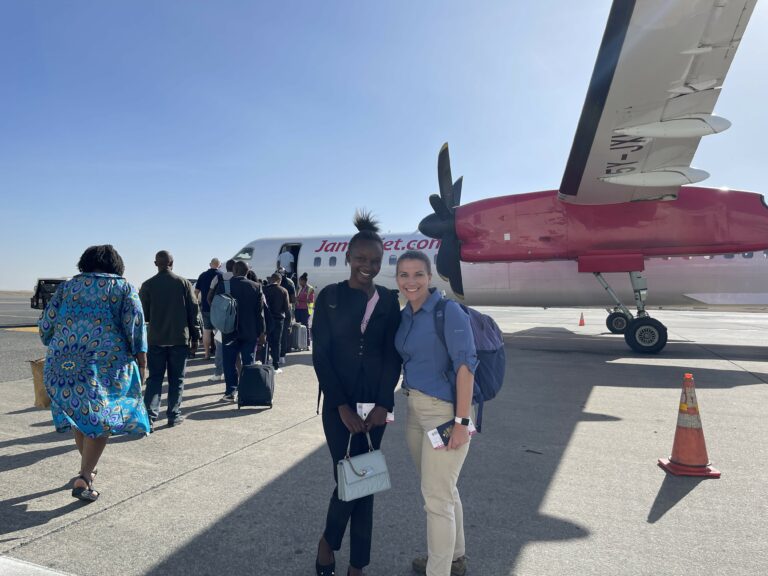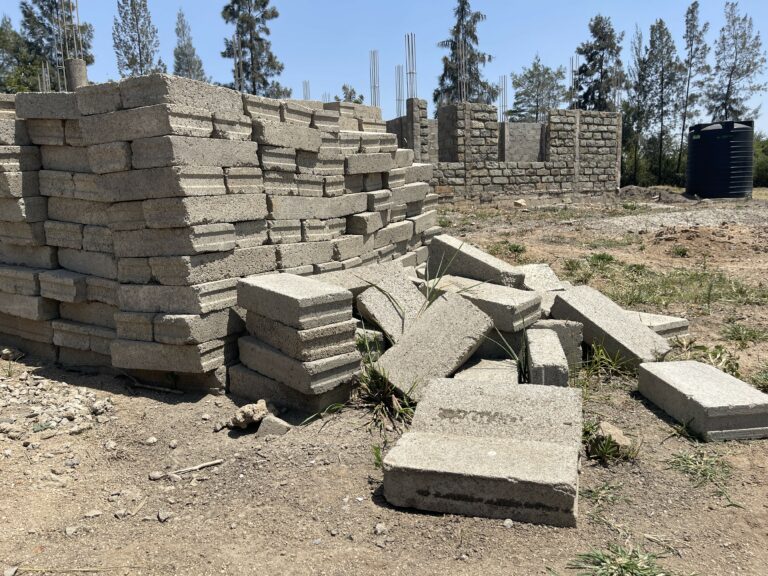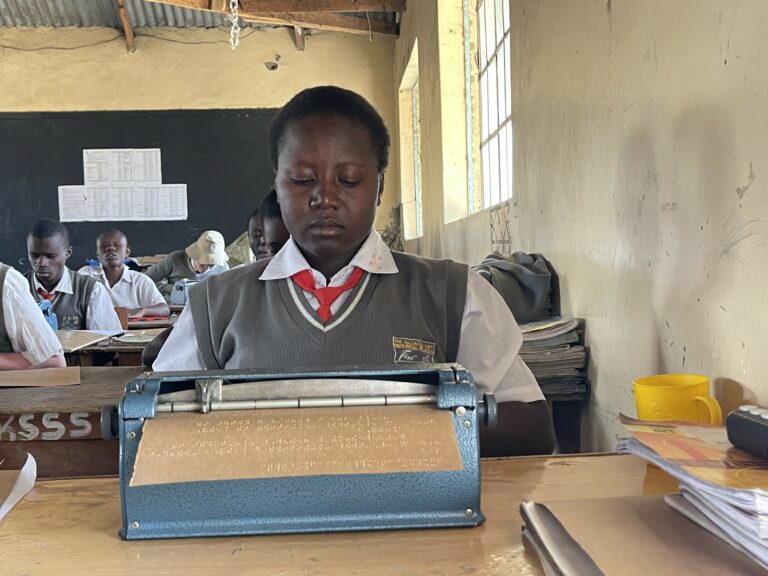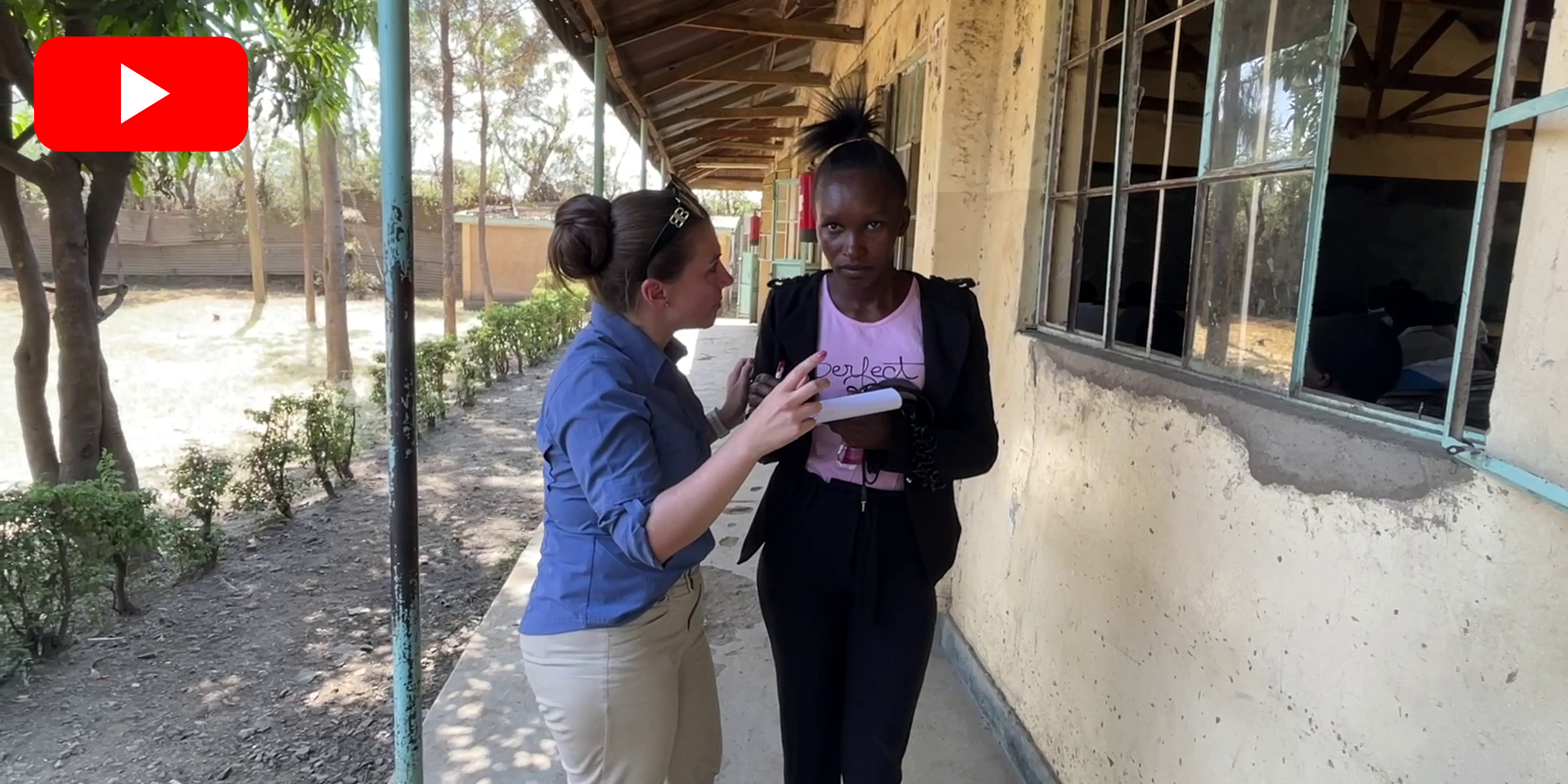By Kayla Hounsell
CBC National Reporter & JHR Trainer for the Canada World Program
I’ll never forget the day Sheillah Nyamwaya came to pitch a story. She was an intern at the Kenya Broadcasting Corporation, and I was a trainer for JHR, trying to identify human rights stories we could tell together.
Sheillah was so quiet and shy – painfully so. But she was also determined.
“My story idea is about the challenges faced by schools for the visually impaired,” she said, ever-so-meekly.
“Uh huh,” I thought. “What do you know about that? Have you spoken to anyone at the school yet?”
She proceeded to rattle off all the details of the research she had done and the people she had pre-interviewed.
Now she had my attention.

Reporter Sheillah Nyamwaya and I board our flight in Nairobi to cover the story in Kisumu. It was her first flight ever.
She explained that Kibos Special Secondary for the Visually Impaired has neither the money for adequate food, nor enough assistive devices, nor a vehicle often needed to rush students to the hospital, nor a proper fence to ensure safety and security. Most urgently, at the moment, they do not have funds to finish a dorm building for the girls to sleep in.
The Basic Education Act of 2013 in the Kenyan Constitution states that the government is obligated to provide special education and training facilities for pupils with disabilities.
With the support of JHR, Sheillah and I were able to fly to Kisumu County to tell their story.
READ JHR TRAINEE SHEILLAH NYAMWAYA’S WORK: Principal of school for the visually impaired pleads for help
The students and staff at the school welcomed us warmly, but what we saw was alarming. Everything Sheillah said was true. The dorm meant for the girls is just a foundation, with piles of bricks stacked outside and no money to finish building. The girls are currently sleeping at the primary school next door, but that’s not a sustainable solution. The school has already asked them to leave.

The unfinished dormitory for girls at Kibos Special Secondary for the Visually Impaired. The Kenyan government provided 10 million Kenyan shillings but it wasn’t enough to complete the facility.
Sharon Atieno Okello, a student there, told Sheillah, “Some girls are sharing beds…some are sleeping on the floor, then they start attracting very funny diseases.”
The principal told us that’s the most urgent need, and I believe that it is, but through my Canadian eyes, it was most difficult to watch the students eating.
One of the teachers told Sheillah many of them have conditions that require special diets but the school cannot provide them.
They were served only spoonfuls of cabbage and Ugali, a Kenyan staple made of maize flour and water. As many of them struggled to find the food on their plates, I couldn’t help but notice there was no protein and their meals were, on the whole, severely nutritionally deficient.
The best journalism is created only when journalists have the ability to observe and bear witness.
We also saw hope.
It was clear what these students do have is teachers who believe in them and encourage them to strive for the education to which they have a right.
That’s not a small thing.

Sharon Atieno Okello is a student at Kibos Special Secondary for the Visually Impaired. She wants people to know that although they are blind, students here can be successful. She wants to be a journalist one day.
Despite it all, the students laughed and giggled, amidst the excitement of having cameras at their school. They proudly showcased their singing talents, and Sharon stepped forward to recite a poem.
“Disability is not inability,” she declared, almost shouting.
We don’t know what will happen as a result of our story. Journalists never do. But as we boarded our flight for Nairobi, Sheillah was determined to get the remaining interviews, with advocates for the blind and government representatives – to hold those in power to account.
Our role is simply to inform, but sometimes when we do that, change happens.
Sheillah worked so much harder than Canadian journalists would have to work to get this fair and accurate, well-balanced journalism out into the world.
I don’t think Kenyans would ever have known what was happening at that school if not for the support of Journalists for Human Rights.



